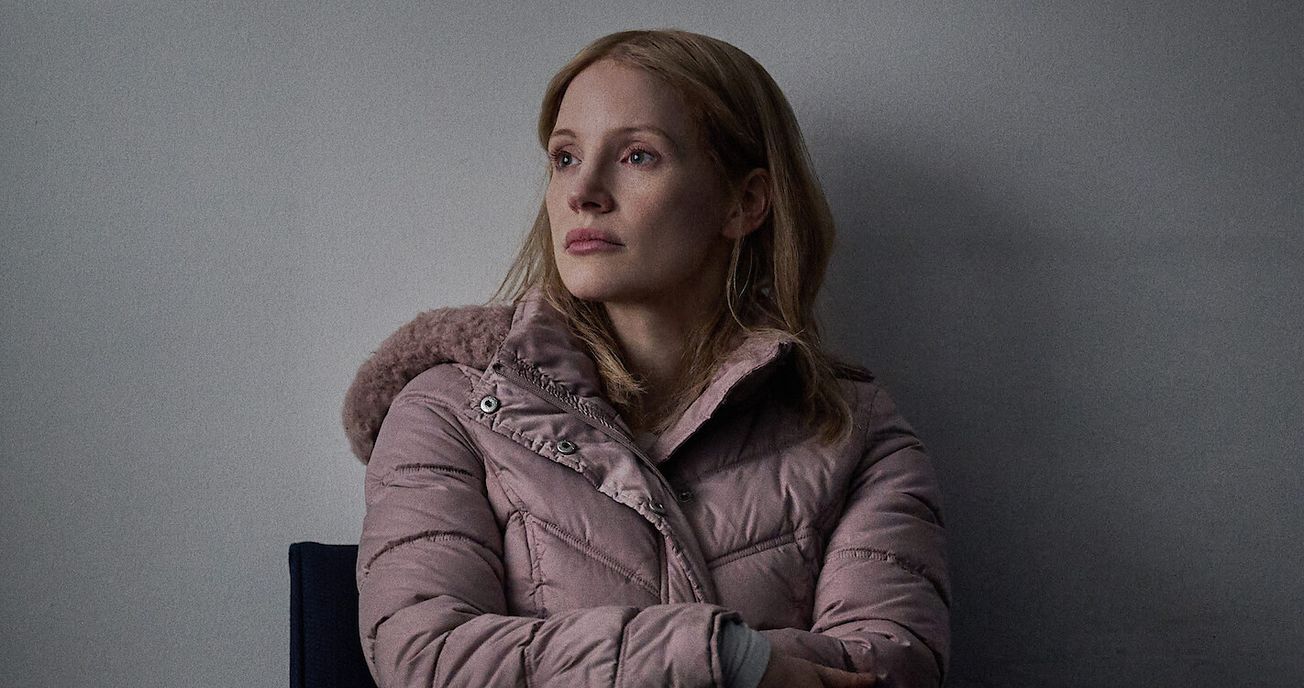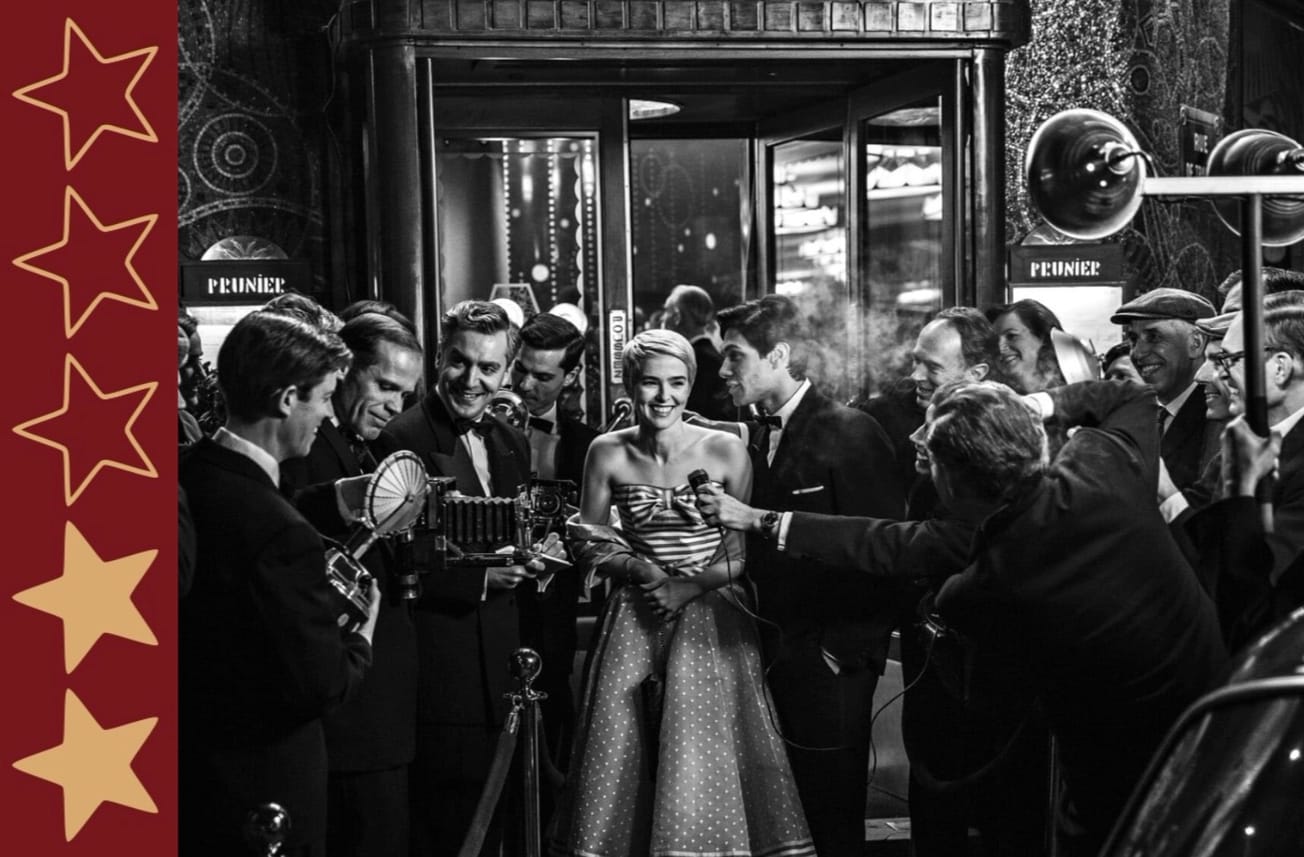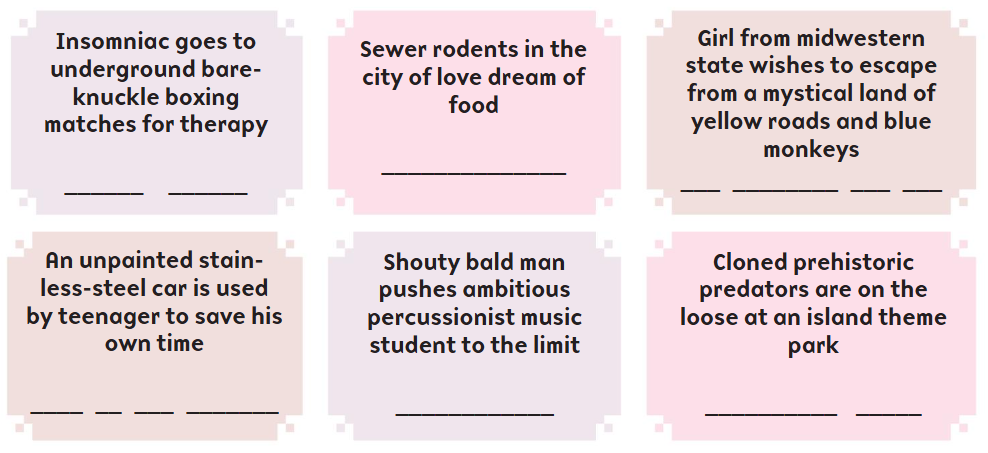By Kalila Smith, Investigations Editor
Based on a true story, The Good Nurse (2022) exceeds all expectations with profound political commentary on the American medical system and gorgeously detailed performances from Jessica Chastain as Amy Loughren, and Eddie Redmayne as Charles Cullen.
The film begins with a blackout accompanied with fervent beeping. Someone is seizing and coding, and in walks, Charles Cullen, soon followed by doctors. With a half-blocked view of the room, the audience focuses on Charles’ contemplative, but also implicitly guilty, expression as he hunches by the corner of the wall while the patient dies.
The screen’s colour palette stays melancholy throughout, with predominantly white and grey colours accompanied by long and subdued shots – it perfectly replicates a hospital environment: detached.
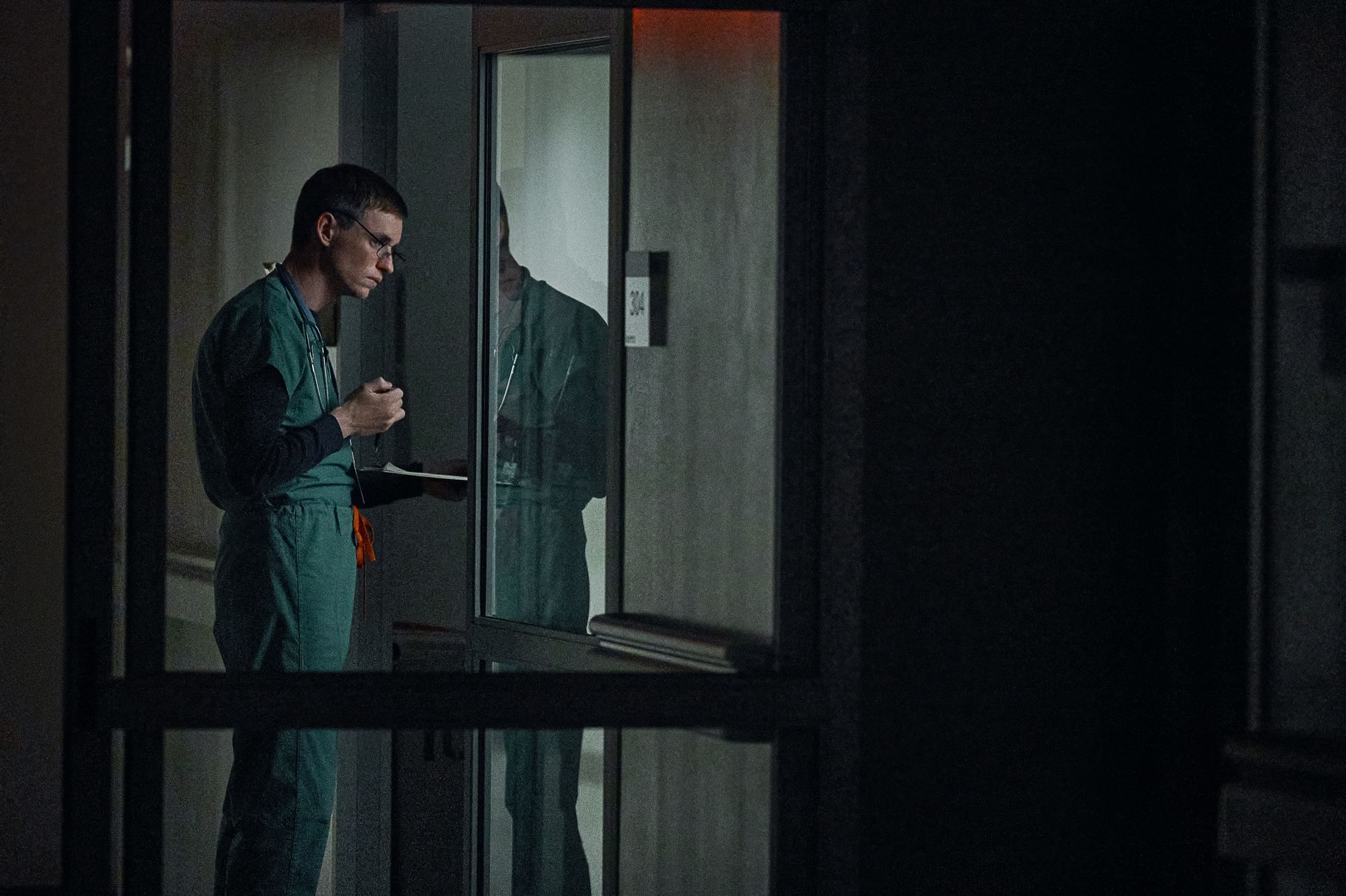
Immediately after, the audience is transplanted to 2003 to join Amy and already there is an evident dichotomy. Amy is the good nurse, whilst Charles remains morally dubious.
Just before Charles is employed at the hospital, Amy discovers she has cardiomyopathy and has no health insurance. There are several shots of Amy assisting a patient whilst having a mini-stroke, a reminder that as she helps people live, she is slowly dying.
The film’s title is in honour of Amy, The Good Nurse, and Amy herself is a touching microcosm of the hard work of medical professionals, particularly nurses. Director Tobias Lindholm also uses her illness as a way to drive home how infrequently Big Pharma in America is held to account.
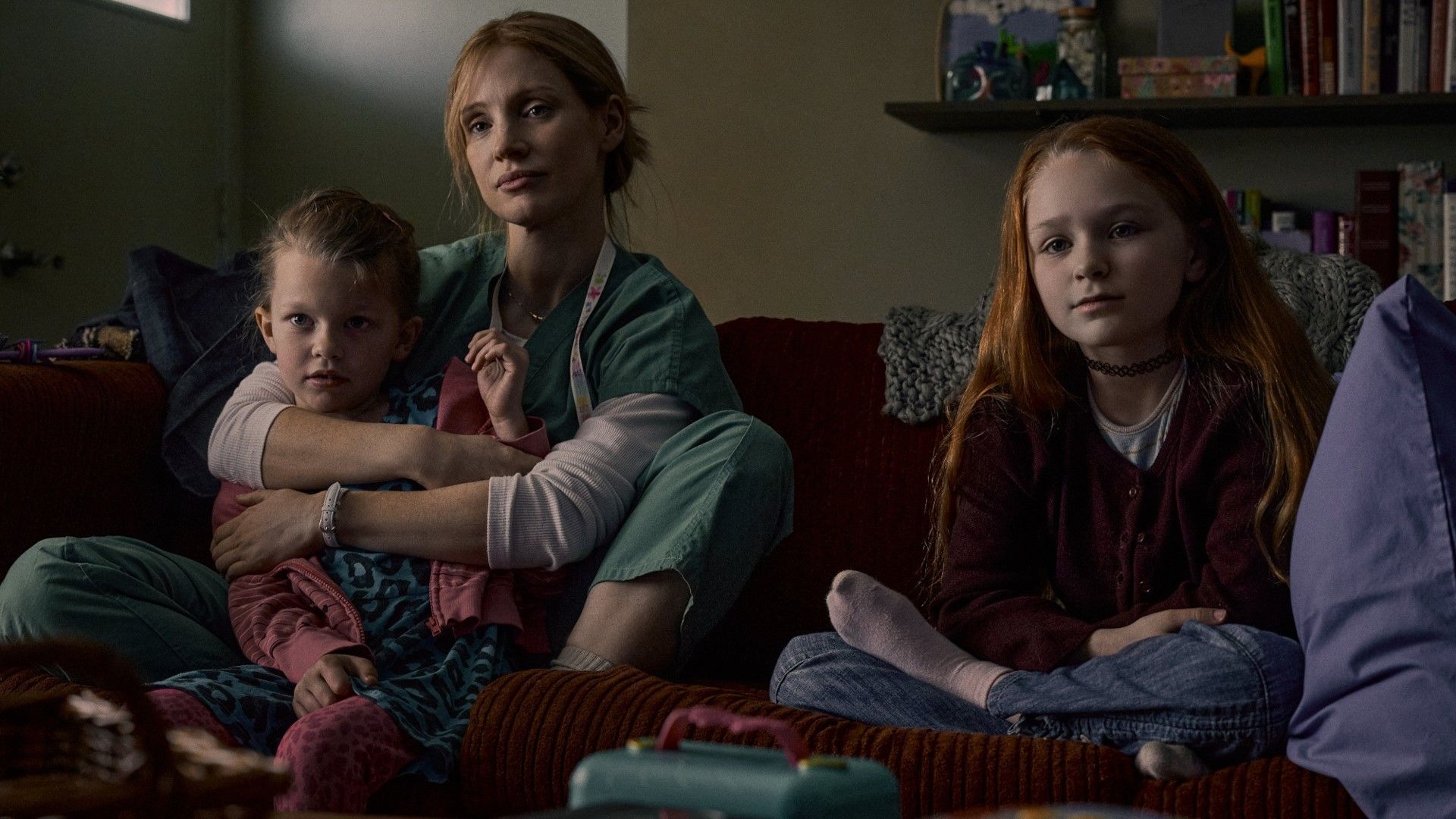
Amy, who is in cahoots with the authorities, discovers Charles has been injecting IV bags with insulin and digoxin, which in large quantities can be lethal. There is a gorgeous shot of Chastain’s character uncovering Charles’ murderous past at previous hospitals. Hard lighting starkly envelops Chastain’s face as her expression changes from bewilderment to epiphanic realisation. As she opens her eyes, this lighting makes her look pale and withdrawn, reminding us that she is on the brink of death herself.
Nnamdi Asomugha – who plays Danny Baldwin, an investigating police officer – perfects the archetype of a morally astute fundamentalist in pursuit of justice. Baldwin and his partner, Braun (Noah Emmerich), face an uphill battle as the investigation of Charles essentially becomes a rivalry: who has more legal leverage between the police and the hospital?
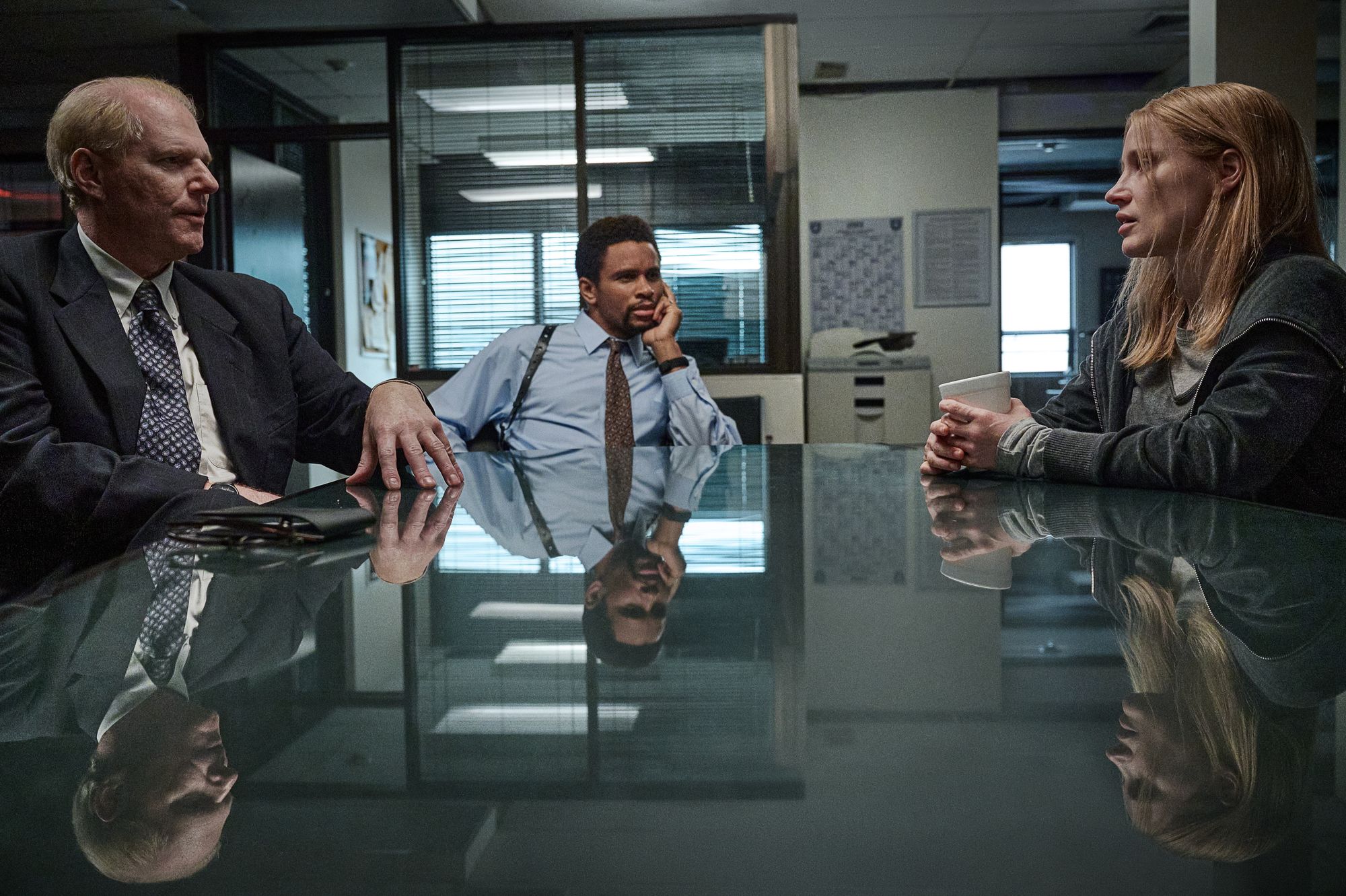
It becomes more evident that Big Pharma is covering Charles’ murderous tracks, making them the ultimate antagonists, with Charles as a mini pawn. Baldwin bluntly states: “[The hospital] It’s a business. There’s never a better motivation than money.”
The most intriguing element of this film is the strange friendship that forms between Amy and Charles. Even though Amy is essentially undercover for the police, and is aware of Charles’ past, there is still an intimate, delicate bond between the two individuals.
Chastain and Redmayne perform an especially emotionally loaded scene in a diner when Amy is covertly attempting to garner a confession from Charles. It is a scene with minimal dialogue, but both actors effectively show the audience the individual dilemmas within each character. Even by the end of the film, there is still an element of fondness between the two, adding an interesting moral ambiguity.
:focal(884x209:886x211)/the-good-nurse-netflix-090722-4-c9cad9d65d294a49b539c25def70170f.jpg)
Another scene that deserves a nod is when Charles is eventually arrested and held in an interrogation room. Essentially, Charles only says two words continuously during the questioning: “I can’t”. However, Redmayne brilliantly expresses the plethora of emotions Charles is feeling.
Do I sense multiple Academy Award nominations? Yes, I do.
Although the film focuses on Amy and Charlie, it truly is a poignant condemnation of Big Pharma and the lack of legal jurisdiction they fall under. From mentioning the extortionate cost of Amy’s doctor’s appointments, to the hospital firing Charles so they can evade accountability for turning a blind eye to his killings; this film helps propagate the ongoing, wider narrative in the film and TV industry, exposing the many intrinsically immoral issues within the American health system.
You would think the villain is Charles, but, as always, the ultimate villain is the money-grabbing institution the criminals work under. If you are looking for a film that changes perspective and chips away at ignorance, The Good Nurse is what you need to be watching.
Featured Image: JoJo Whilden/Netflix, courtesy of IMDB
Do you think films like The Good Nurse are necessary to hold systems of power to account?

